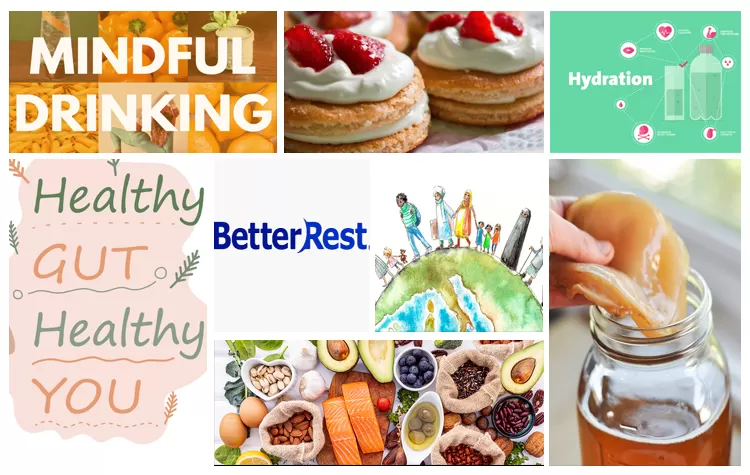
Non-alcoholic beverages have become popular lately, since the world is heading toward healthier and conscious consumption. Consumers are increasingly consuming them based on health, social, or personal reasons. Such needs are an expression of cultural views on wellness or achieving a balance without compromising taste or social experiences. Below is a closer look at the growing need for non-alcoholic beverages and their contribution toward a healthier lifestyle:
Non-alcoholic beverages are drinks that are designed to be similar to alcoholic beverages but contain virtually no alcohol whatsoever. A list of examples may include non-alcoholic beer, non-alcoholic wine, spirits, and mocktails. Of course, the term also encompasses health-centric drinks such as kombucha, herbal teas, flavored water, and function-based beverages enriched with vitamins or probiotics.
1. Health and Wellness Trends
2. The Sober-Curious Movement
3. New Developments in Taste and Quality
1. Fewer Calories
To a great extent, mixed drink, beer, and wine are calorie-dense beverages. Other alternatives based on non-alcoholic beverages are usually lower-calorie versions, which is very helpful for those who keep tabs on their weight or are undergoing a weight loss process.
2. Hydration
Well, booze, ironically enough, is a diuretic-it literally dries you out. Non-boozy drinks hydrate better than just about anything and prevent that dreaded hangover fatigue-more so if brewed with hydrating ingredients like water, electrolytes, and coconut water.
3. Better Rest
This can disturb the normal sleep profile, affect the REM, and even cause restlessness in the wee hours of the night. A shift to milder beverages might improve the quality of sleep in a desperate attempt to energize and clear up the mind when woken in the morning.
4. Increased Concentration and Clear Head
Alcohol may impair cognitive function and exhibits a shift in mood, concentration, and production. Lower consumption or adopting non-alcoholic beverages will be beneficial in achieving more clarity of mind, acuity, and overall well-being.
5. Healthier Gut
The non-alcoholic probiotic beverage such as kombucha tends to exercise itself well in gut health. It also enhances good digestion and immunity thereby propelling gut flora.
6. Enhanced Long-term Health
Drinking alcoholic beverages daily enhances the risk factors for long-term health issues, like liver disease, heart conditions, and cancer of certain types. Staying away from them removes such risks, therefore ensuring a healthier life in the long run.
7. Encourages Social Integration
With non-alcoholic beverages, one can attend social functions without necessarily drinking. It gives room for everybody to socialize without the tendency of excluding some people who for health reasons, religious values, or personal reasons do not drink.
1. Non-alcoholic beer and wine
These drinks are actually replicas of the classic beers and wines, completed with variety of flavors and styles, but minus alcohol. There are many examples of companies like Heineken 0.0 and Seedlip that are defining the world of non-alcoholic beers and spirits as mainstream fun.
2. Kombucha
Kombucha is fermented tea that takes care of one's digestive system, probiotic and refreshing to taste. It gains more popularity for being an alternative to sugary soda and alcoholic drinks.
3. Mocktails
Mocktails are the non-boozy versions of cocktails, no less sophisticated than their alcoholic counterparts in flavors and presentation. For being consumed at social occasions where alcohol is so commonly indulged, they represent a marvelous answer.
4. Functional Beverages
The drinks are fortified with vitamins, minerals, and antioxidants that give healthgiving, calming, or revitalizing properties. The popular options in this group include herbal teas, coconut waters, and plant-based waters.
5. Infused Water
It's flavoured, healthy beverages through infusing water with fruits, herbs, and botanicals, averse to sugary drinks and alcohol. Hydration without excess calories or artificial ingredients.
Conclusion
This product thrives in a thriving market where health, wellness, and mindful consumption are on the move and with products such as this, which offer significant health benefits-from fewer calories, improved hydration, and mental clarity-for an individual seeking a healthier lifestyle. With ongoing innovation in terms of taste, quality, and variety, non-alcoholic drinks will feature in future drinking culture.